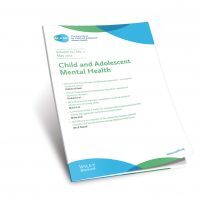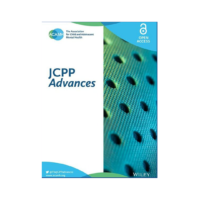Minorities
-

International Women’s Day #AccelerateAction: Accelerating gender equality in psychological research and psychiatry
On March 8th, 2025, the world is celebrating the 104th International Women’s Day, a tradition that began in 1911. This year’s International Women’s Day focuses on the theme of “Accelerate Action”, which highlights the urgency for dismantling systematic barriers that hinder women’s full participation in various research fields – including psychology and psychiatry.
Read more -

Dr. Cornelius Ani – Deputy Editor in Chief
Dr. Cornelius Ani is an Honorary Clinical Senior Lecturer at the Division of Psychiatry, Imperial College London, and a Consultant Child and Adolescent Psychiatrist at Surrey and Borders Partnership NHS Foundation Trust. He is a member of the Executive Committee of the African Association for Child and Adolescent Mental Health. Dr Ani is responsible for the Letters to the Editor section and he contributes editorial expertise in the area of Low and Middle Income Countries, inequalities, and physical health.
Read more -

CAMH Journal 2024 Special Issue – ‘Equity, Diversity, and Inclusion in Child and Adolescent Mental Health’
The Child and Adolescent Mental Health (CAMH) Journal are delighted to announce the CAMH 2024 Special Issue on ‘Equity, Diversity, and Inclusion in Child and Adolescent Mental Health’, edited by Cornelius Ani, Bolanle Ola, Matthew Hodes, and Valsamma Eapen.
Read more -

Let’s Talk About the Need to Invest in Women Researchers and Leaders
Every International Women’s Day, there is a call to retain talented women in Science, Technology, Engineering, and Mathematics (STEM) fields, with strategies and proposals often given by influential organisations such as the United Nations. These proposals aim to steer improvement in workplace cultures and environments, and champion equity in the opportunities available to women across fields. The theme of this year’s United Nations International Women’s Day is “Invest in women: Accelerate progress.” This blog discusses the leaky STEM pipeline with a focus on why we need to invest in women researchers, and sharing my own experiences as a woman pursing mental health research.
Read more -

#InspireInclusion: Addressing the Undue Service Burden Placed on Women Faculty in Psychology
Psychology is often highlighted as a STEM field that has “overcome” the gender gap present in academia; while it is true that significant progress has been made in our field over the last 20 years, gender gaps still remain with regard to service responsibilities. This burden is one contributor to the well-established differences in publication and grant rates and the under-representation of women at the full professor level. This blog highlights literature on this topic and some strategies for overcoming this undue service burden.
Read more -

Inclusion and Advocacy for Women with ADHD: Addressing Inequities and Challenging Diagnostic Bias on International Women’s Day
March 8th, 2024 is International Women’s Day and this year’s theme is “Inspire Inclusion.” Unfortunately, women who hold multiple intersecting identities that are systemically oppressed world-wide are often excluded from discussions. One example includes women who are neurodiverse, and more specifically for this post, women with attention-deficit/hyperactivity disorder (ADHD). Women and non-binary folks are often excluded from appropriate diagnosis of ADHD due to bias in providers, boy/men-dominated symptoms in the DSM-5 (Barkley, 2023; Hinshaw et al., 2021), socialization to mask and internalize symptoms, and sexism and other forms of discrimination. As with most discrimination, this is even worse for women with ADHD who also hold other systemically oppressed identities. This blog will focus on how to increase equity for women with ADHD with concrete solutions for multiples systems that affect them.
Read more -

Colouring the Mind: Racism and Mental Health – The Concept
‘Colouring the Mind: Racism and Mental Health’ is a new mini In Conversations series that will explore how racism affects mental health, with a particular focus on racism in the mental health system and racism in the mental health concept.
In this episode, Malaika Okundi and Jessica O’Logbon focus on the concept of racism in mental health and discuss definitions of race, racism, and mental health as concepts.
Read more -

Measurement bias in caregiver-report of early childhood behavior problems across demographic factors in an ECHO-wide diverse sample
Open Access paper from JCPP Advances – ‘While studies have shown that demographic variables influence caregiver ratings of behavior problems, the extent to which the CBCL/1.5-5 functions equivalently at the item level across diverse samples is unknown.’ Shuting Zheng (pic) et al.
Read more -

Technology Matters: Online, self-help single session interventions could expand current provision, improving early access to help for young people with depression symptoms, including minority groups
Open Access paper from the CAMH journal – ‘Current mental health service provision for young people was primarily designed based on an assumption of repeat attendance to enable access to interventions. This applies to in-person therapy and, in recent years, digitally provided apps and programmes. Yet, discontinuation after only one or two attendances or uses is a common problem. However, there is a different model, which is intentionally designing provision without assuming repeat attendance, that is, single session interventions.’ Maria E. Loades (pic) and Jessica L. Schleider
Read more -

JCPP Advances: Volume 3, Issue 02, June 2023
JCPP Advances June 2023 Issue is now available to read.
Read more